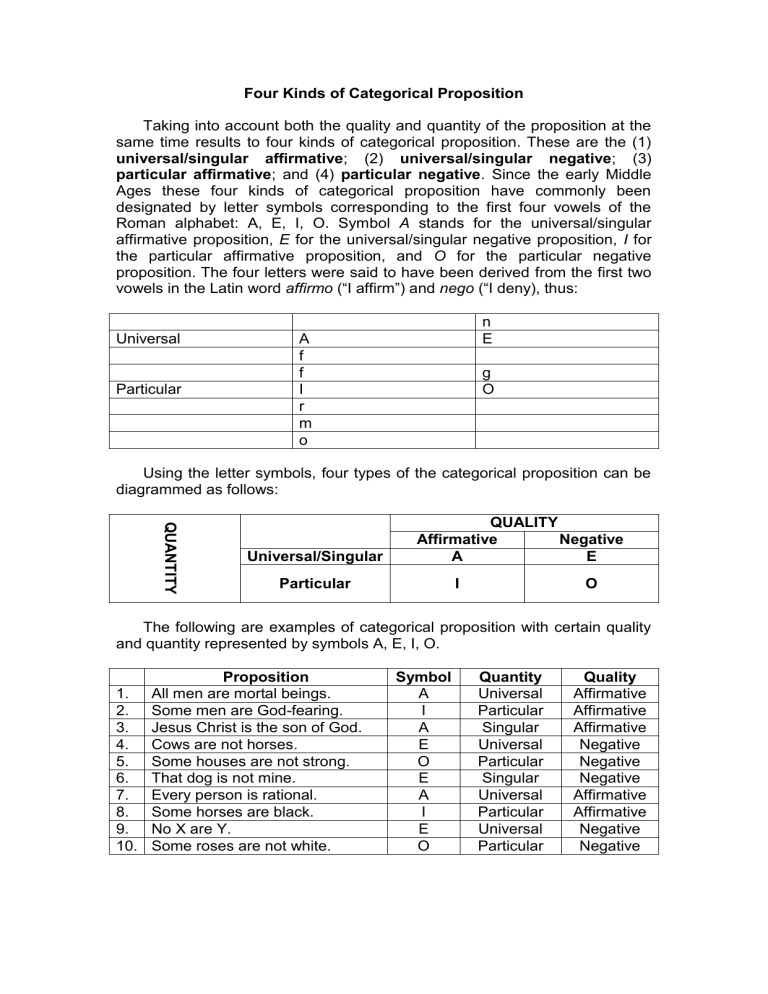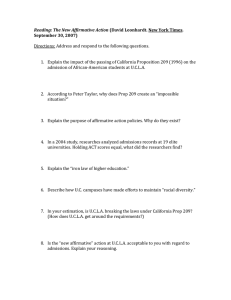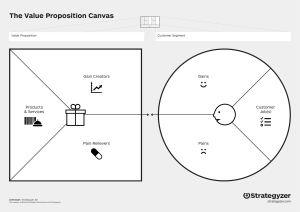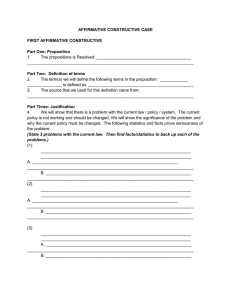
Four Kinds of Categorical Proposition Taking into account both the quality and quantity of the proposition at the same time results to four kinds of categorical proposition. These are the (1) universal/singular affirmative; (2) universal/singular negative; (3) particular affirmative; and (4) particular negative. Since the early Middle Ages these four kinds of categorical proposition have commonly been designated by letter symbols corresponding to the first four vowels of the Roman alphabet: A, E, I, O. Symbol A stands for the universal/singular affirmative proposition, E for the universal/singular negative proposition, I for the particular affirmative proposition, and O for the particular negative proposition. The four letters were said to have been derived from the first two vowels in the Latin word affirmo (“I affirm”) and nego (“I deny), thus: Universal Particular n E A f f I r m o g O Using the letter symbols, four types of the categorical proposition can be diagrammed as follows: QUANTITY Universal/Singular QUALITY Affirmative Negative A E Particular I O The following are examples of categorical proposition with certain quality and quantity represented by symbols A, E, I, O. 1. 2. 3. 4. 5. 6. 7. 8. 9. 10. Proposition All men are mortal beings. Some men are God-fearing. Jesus Christ is the son of God. Cows are not horses. Some houses are not strong. That dog is not mine. Every person is rational. Some horses are black. No X are Y. Some roses are not white. Symbol A I A E O E A I E O Quantity Universal Particular Singular Universal Particular Singular Universal Particular Universal Particular Quality Affirmative Affirmative Affirmative Negative Negative Negative Affirmative Affirmative Negative Negative Note: A: All X are Y./ All men are rational beings. E: No X are Y. I: Some X are Y. O: Some X are not Y.




